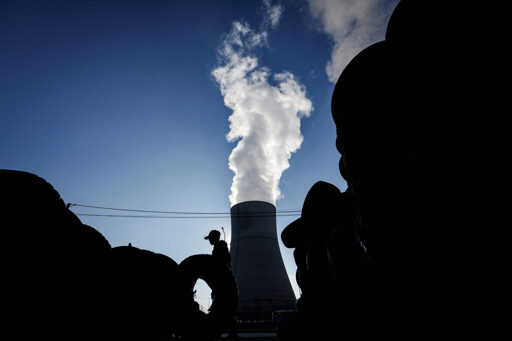As sharp divisions at UN talks stall progress on a shift away from fossil fuels, 24 countries have backed a first global conference on the transition, saying the summit in Colombia next April is needed to speed up efforts to wean the world off planet-heating oil, gas and coal.
The conference aims to bring together governments, experts, industry leaders and Indigenous people among others, to chart “legal, economic and social pathways” for a fair and just phase-out of fossil fuels, Colombia’s Environment Minister Irene Vélez Torres told journalists at COP30 on Friday.
Supporters of the initiative include major fossil fuel producers Australia and Mexico, as well as several European, Latin American and Pacific island nations.
Colombia and the Netherlands will co-host the event on April 28-29 in the Colombian port city of Santa Marta, which plays a significant role in coal exports.
Speaking after the release of a COP30 draft decision text that failed to mention fossil fuels, Vélez Torres told a packed-out room: “We know that this conversation cannot end here.”
“We must keep the momentum, lead with bravery, rise to the challenge, and build a coalition of the willing,” she added.
The conference is meant to sit alongside discussions taking place under the UN climate regime, where all 198 signatories need to reach decisions by consensus.
Conference to feed into COP31
Vanuatu’s climate minister Ralph Regenvanu said the Colombia-led coalition is needed to advance discussions over the transition regardless of what happens at COP30. The conference “will strengthen the process here next time we meet in Turkiye” at COP31, he added.
Australia, a backer of the initiative, announced this week that it will run negotiations at COP31 next year even though the conference will take place in the Turkish coastal city of Antalya.
The 24 countries signed a joint declaration supporting calls to develop a roadmap for the shift away from fossil fuels and setting out the conditions for a just and equitable transition.
Those include consideration of national circumstances and the need to support workers and vulnerable communities, as well as the importance of financial and technological support and of promoting diversified economies that reduce reliance on fossil fuel revenues.
 Nov 19, 2025News
Nov 19, 2025News
EU tables proposal for COP30 fossil fuel roadmap after settling internal rift
Reservations from Italy and Poland initially prevented the bloc from formally pushing for an agreement over a roadmap to transition away from fossil fuels in BelémRead more Nov 20, 2025News
Nov 20, 2025News
Rich nations push back on calls for new just transition mechanism
The Belém Action Mechanism’s backers say it would fortify efforts to shield workers and communities hurt by fallout from the clean energy shift, but developed countries are resistant to the proposalRead more
Alex Rafalowicz, director of the Fossil Fuel Non-Proliferation Treaty Initiative, described the declaration as “historic”. That’s because for the first time a fossil-fuel producing country like Australia “recognises that production, licensing, subsidising and consumption [of fossil fuels] are matters of international concern”, he added.
Matthew Webb, associate director for Global Clean Power Diplomacy at think-tank E3G, said the coalition demonstrates “the growing and unprecedented level of support at COP30 to deliver a process for a roadmap to the just transition away from fossil fuels”.
With Australia now on board, there is a clear path for such a roadmap to be landed in Belem and taken forward into COP31, he added. Current draft texts do not refer to a fossil fuel transition roadmap, to the chagrin of some including the European Union, as well as Latin American and Pacific island states.
“Securing our survival”
Tuvalu’s climate minister Maina Talia expressed disappointment over the lack of a “survival map” for quitting fossil fuels at COP30, as his country faces an existential threat from rising sea levels.
He added that “after 30 years, this process is still failing us, so we will not wait” and instead work on a different process “to secure our survival”.
Johanna Gusman, senior attorney at the Center for International Environmental Law, described Colombia’s 2026 conference as “a step towards good-faith international cooperation to actually tackle the climate crisis”.
“We need a time-bound plan to curb [fossil fuel] production and use, end new licensing and subsidies, and mobilise finance for developing countries,” she added in a statement.
The post Colombia seeks to speed up a “just” fossil fuel phase-out with first global conference appeared first on Climate Home News.
From Climate Home News via this RSS feed

